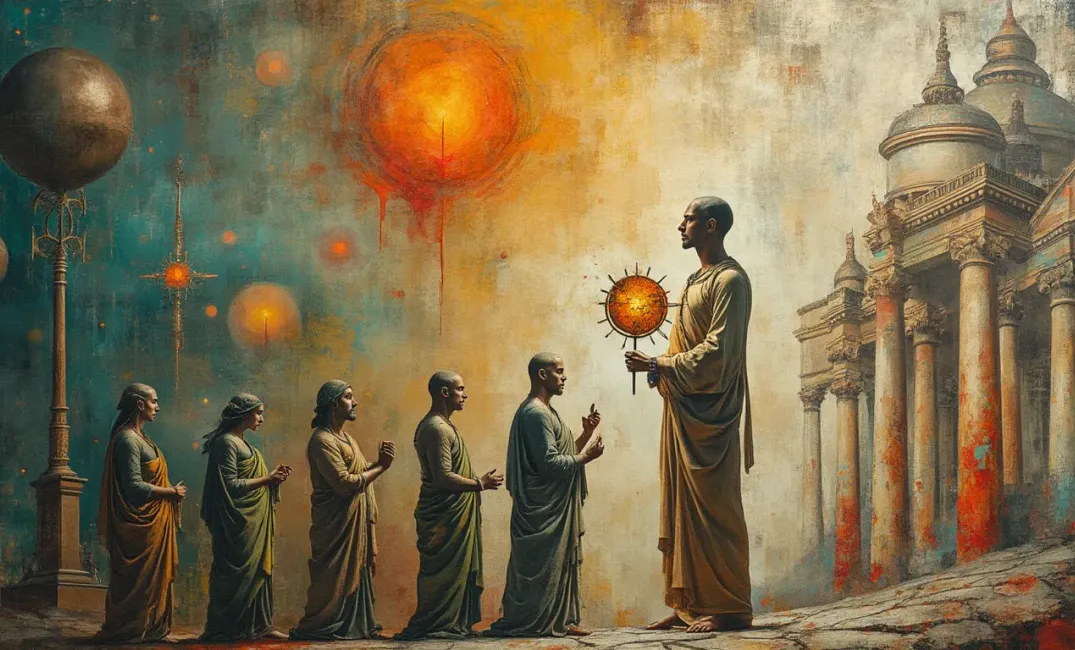Introduction: Navigating the Landscape of Human Ethics
Ethics forms the core of civilizations, guiding human behavior and societal norms throughout history. This body of principles, which defines what is deemed right or wrong by individuals and communities, has helped shape human interactions, legal frameworks, and cultural ethos. In this reflection, we explore the evolution of ethical thought, its influence on societies, and the timeless moral dilemmas that challenge humanity.
"Ethics is knowing the difference between what you have a right to do and what is right to do." — Potter Stewart
The Foundations of Ethics: Ancient Wisdom and Early Philosophy
Prehistoric and Cultural Beginnings
- Innate Morality and Survival: Before formalized philosophies, ethical behaviors likely evolved naturally, influenced by survival instincts and community cohesion. Language development allowed for the sharing of cultural stories that conveyed moral lessons, reinforcing group values.
- Cultural Myths and Narratives: Mythologies and oral traditions across societies presented moral tales that outlined societal values, such as justice, courage, and compassion. These narratives not only preserved cultural wealth but instilled ethical principles reflecting the human condition.
Greek and Eastern Philosophical Contributions
- Ancient Greek Philosophy: The Greek philosophers—Socrates, Plato, and Aristotle—established foundational ethical concepts, examining virtue, purpose, and happiness. Aristotle's "Golden Mean" promoted moderation and balance as ethical ideals.
- Eastern Ethical Systems: Eastern philosophies like Confucianism and Buddhism emphasized social harmony and internal peace as essential ethical virtues. Confucius focused on relationships and conscientiousness, while Buddhism advocated compassion and the cessation of suffering through ethical living.
The Evolution of Ethical Thought: From Religion to Enlightenment
Religious Ethics: Divine Law and Morality
- Abrahamic Religions: The scriptural foundations of Judaism, Christianity, and Islam provided ethical frameworks reflected in divine commands. Concepts of sin, salvation, justice, and charity have profoundly impacted both personal behavior and societal governance.
- Hinduism and Dharma: Hindu ethics, rooted in the concept of Dharma, prescribe duties and rights inherent in the cosmic order. Karma and reincarnation demonstrate the interplay between ethical actions and spiritual growth.
The Age of Enlightenment
- Rationalism and Humanism: Enlightenment thinkers like Kant and Locke challenged traditional religious dogma with rationalism and humanist ideals. Kant's "Categorical Imperative" posited that ethical actions are those which could be universal laws, while Locke's social contract theory informed democratic governance frameworks.
- The Origins of Rights and Liberty: Enlightenment philosophies paved the way for modern human rights ideologies, emphasizing individual freedoms and rights. These shaped revolutionary movements toward egalitarian states and laid the groundwork for contemporary justice systems.
The 20th Century and Beyond: Complex Moral Landscapes
Science, Technology, and Ethics
- Technological Transformations: The pace of technological advancement outstripped traditional ethical considerations, posing new dilemmas in areas such as bioethics, artificial intelligence, and digital privacy.
- Environmental Ethics: The industrial age necessitated ethical considerations about humanity's role in environmental stewardship. Movements towards sustainability reflect ethical commitments to balance progress with ecological responsibility.
Social Justice and Global Ethics
- Human Rights and Globalization: The recognition of universal human rights brought ethical discourse into the global arena, fostering cross-cultural dialogue about equity, justice, and inclusion.
- Diversity, Equity, and Inclusion: Contemporary ethical challenges include addressing systemic injustices across gender, race, and socio-economic lines, advocating inclusivity and equitable representation in policy and culture.
Ethical Dilemmas and Humanity's Moral Compass
Perennial Ethical Questions
- The Trolley Problem and Moral Choices: Hypothetical dilemmas like the Trolley Problem illuminate the complexities of ethical decision-making and the balance between collective good and individual harm—a hallmark of ethical education and debate.
- Privacy vs. Security: Ethics in the digital age struggles with reconciling personal privacy with communal security, reflecting tensions between advancing technologies and human rights protections.
Navigating Moral Uncertainty
- The Role of Empathy and Compassion: In resolving ethical dilemmas, empathy often plays a decisive role in understanding diverse perspectives, transcending biases, and guiding compassionate solutions.
- Adaptive Ethics in an Evolving World: Facing an uncertain future demands flexible ethical frameworks capable of addressing shifting societal priorities while adhering to timeless moral philosophies.
Conclusion: The Eternal Quest for Ethical Clarity
The journey through humanity's ethical landscape reveals a rich tapestry woven with philosophical insights, religious values, cultural narratives, and scientific advancements. Ethical frameworks have evolved by reconciling tradition and innovation, providing a moral compass across eras.
"In law, a man is guilty when he violates the rights of others. In ethics, he is guilty if he only thinks of doing so." — Immanuel Kant
As humankind voyages through the cosmos, preserving ethical wisdom ensures that human advancements resonate with benevolence, justice, and inclusive prosperity. This commitment to ethical clarity remains humanity's anchor in navigating the vast frontiers of existence, fostering a future where collective good and individual dignity coexist harmoniously.
PHILOSOPHY, ENVIRONMENT, SOCIAL JUSTICE, ENLIGHTENMENT, ETHICS, GLOBALIZATION, RELIGION, TECHNOLOGY, MORAL DILEMMAS, HUMAN RIGHTS

